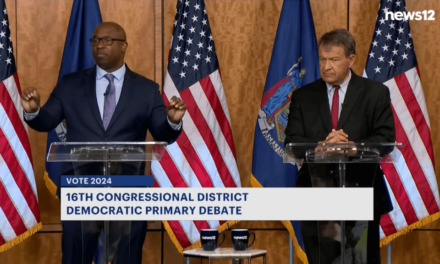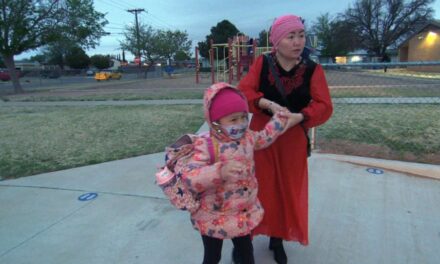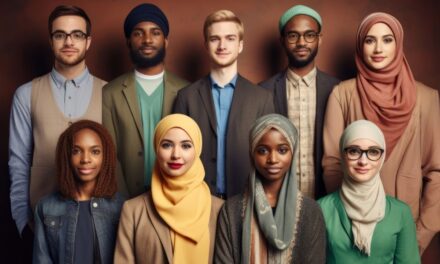
Originally Published By:
Adrienne Mahsa Varkiani as “Islamophobia in America is about politics more than religion” on Think Progress
Your feelings about Muslims depend more on your politics than your faith, according to a new survey.
The American Muslim Poll 2019, a research project by the Institute for Social Policy and Understanding (ISPU), found that a range of factors determine people’s views on Muslims, including their politics, views about other minorities, and whether or not they have a Muslim friend — but not how religious they are.
The survey polled nearly 2,400 people in January 2019 to gather insight into the views of Muslim, Jewish, Catholic, Protestant, white evangelical, and religiously unaffiliated Americans.
Working with Georgetown University’s Bridge Initiative, a research project on Islamophobia, the ISPU measured the extent to which the public endorses five anti-Muslim stereotypes in an “Islamophobia Index.” On a scale of 0-100, the public’s endorsement of negative stereotypes about Muslims increased from 24 in 2018 to 28 in 2019.
The poll found that one of the strongest predictors of whether people hold favorable views of Muslims is whether they identify as a Democrat or liberal. That may explain why a large majority of Muslims who voted in the 2018 midterm elections were more likely to vote for a Democrat for Congress (76%) than a Republican, the study noted.
Another strong predictor of Islamophobia was a person’s views on other minorities — specifically on black Americans, Jews, and LGBTQ people. The survey found that respondents were more likely to have favorable views of Muslims if they have favorable views of other minority groups. This proved to be an even better way to predict someone’s feelings toward Muslims than whether or not they actually know a Muslim person. Favorable views of feminists were a moderate predictor of favorable views towards Muslims.
Interestingly, knowing something about Islam generally was a stronger predictor than knowing a Muslim person, the report found, which “suggests that knowledge of the faith helps dispel generalized tropes about the people even more than knowing one good individual member of that group, who can be dismissed as an exception or ‘one of the good ones.’”
Higher income was a moderate predictor of whether someone holds favorable views of Muslims. One’s sex, age, education, nativity to the United States, and religiosity were not clearly linked to Islamophobia.
“Islamophobia is therefore clearly more political and ideological than theological for most Americans,” the report concludes.
While religiosity — measured as either spiritual engagement, group solidarity, or importance of religion in daily life — was not correlated to Islamophobia in a meaningful way, the study did note that faith groups in America view Muslims differently.
Jewish Americans scored the lowest on the Islamophobia index (18), after Muslims themselves, while white Evangelicals scored the highest (35). A majority of Jewish Americans (53%) hold favorable views of Muslims, while white evangelicals are twice as likely to hold negative views (44%) about Muslims than positive ones (20%). One reason for that is how many of them actually know a Muslim. According to the report, three in four Jews actually know a Muslim, while only one in three white evangelicals do. (For comparison, about half of the general public know a Muslim.)
The report offers clear solutions on combating Islamophobia, including educating the public on Islam and fostering more human interaction between people of different backgrounds. The report also stresses the importance of building coalitions with other marginalized communities in America.
Pointing to the link between lower Islamophobia and favorable views of black Americans, Jews, and LGBTQ people, the report concludes that “Islamophobia is just one branch on a bigger tree of bigotry.”
“Combat Islamophobia in coalition with other impacted communities,” the authors suggest. “Work to end racism and religious bigotry more generally.”













